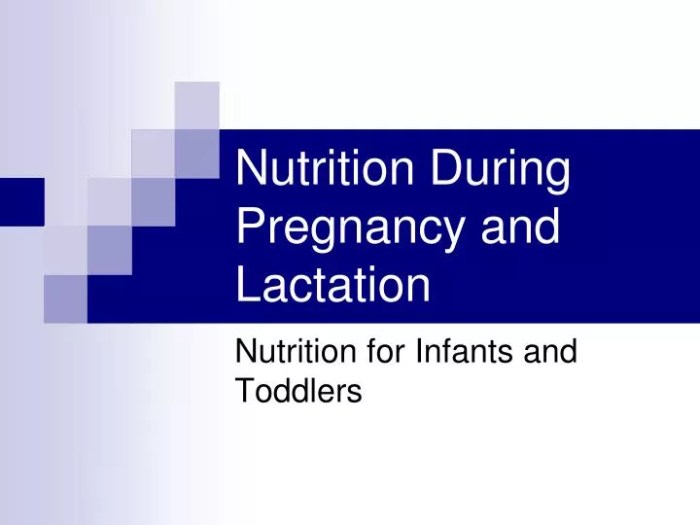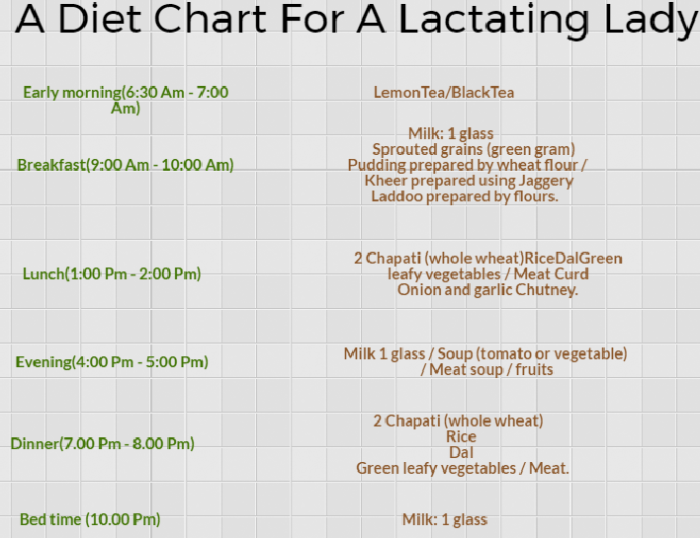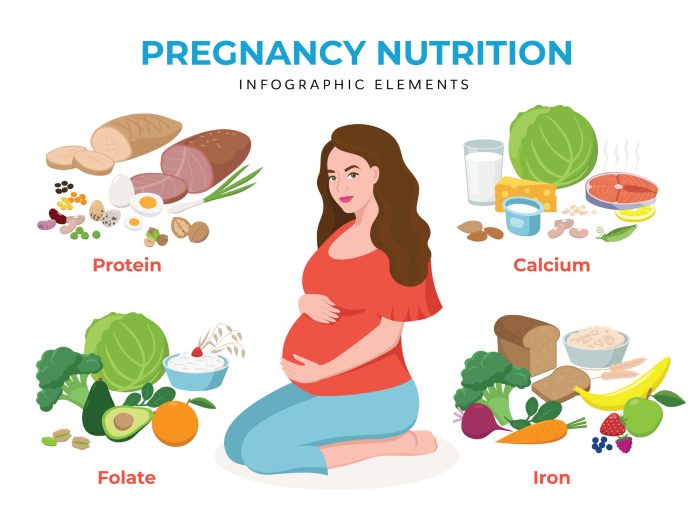Nutrition for pregnant and lactating mothers ppt – Nutrition for Pregnant and Lactating Mothers: A Comprehensive Guide to Nourishing Two Lives delves into the profound impact of maternal nutrition on the well-being of both mother and child. This guide provides invaluable insights into the nutritional requirements, dietary recommendations, and cultural influences surrounding this crucial stage of life.
The narrative explores the intricate relationship between maternal nutrition and fetal development, highlighting the significance of adequate nutrient intake for optimal growth, cognitive function, and long-term health outcomes.
Nutritional Requirements for Pregnant and Lactating Mothers: Nutrition For Pregnant And Lactating Mothers Ppt

During pregnancy and lactation, women have increased nutritional needs to support the growth and development of the fetus and infant. Meeting these requirements is essential for the health and well-being of both the mother and the baby.
Specific nutrients that are particularly important during this period include:
- Folic acid
- Iron
- Calcium
- Omega-3 fatty acids
Sources of Nutrients for Pregnant and Lactating Mothers

The best sources of these essential nutrients for pregnant and lactating mothers are:
- Folic acid:Leafy green vegetables, fortified cereals, beans, and citrus fruits
- Iron:Red meat, fish, beans, and lentils
- Calcium:Dairy products, leafy green vegetables, and fortified foods
- Omega-3 fatty acids:Fatty fish, flaxseeds, and walnuts
A balanced and varied diet that includes a wide range of nutrient-rich foods is essential to ensure adequate intake of all essential nutrients.
Dietary Recommendations for Pregnant and Lactating Mothers

Pregnant and lactating mothers should consume:
- Calories:1,800-2,400 calories per day during pregnancy and 2,200-2,800 calories per day during lactation
- Protein:71 grams per day during pregnancy and 80 grams per day during lactation
- Iron:27 milligrams per day during pregnancy and 10 milligrams per day during lactation
- Calcium:1,000 milligrams per day during pregnancy and 1,300 milligrams per day during lactation
- Folic acid:600 micrograms per day during pregnancy and 500 micrograms per day during lactation
It is important to limit certain foods during pregnancy and lactation, such as raw fish and unpasteurized milk.
Prenatal vitamins and supplements may be recommended to ensure adequate nutrient intake.
Managing Nutritional Challenges during Pregnancy and Lactation

Common nutritional challenges faced by pregnant and lactating mothers include:
- Nausea
- Food aversions
- Gestational diabetes
Strategies for managing these challenges include:
- Eating small, frequent meals
- Avoiding foods that trigger nausea or food aversions
- Managing blood sugar levels through diet and exercise
It is important to seek professional advice from a healthcare provider or registered dietitian for personalized guidance.
Importance of Nutrition for Fetal and Infant Development
Adequate nutrition during pregnancy and lactation is essential for the optimal growth and development of the fetus and infant.
Maternal nutrition can impact the baby’s:
- Birth weight
- Cognitive development
- Overall health
Nutrition for Pregnant and Lactating Mothers in Different Cultures
Cultural influences play a role in nutrition for pregnant and lactating mothers around the world.
Common dietary practices and beliefs in different cultures include:
- Traditional diets:Many cultures have specific dietary recommendations for pregnant and lactating mothers, often based on traditional beliefs and practices.
- Food taboos:Some cultures have food taboos that restrict pregnant and lactating mothers from eating certain foods, such as raw meat or spicy foods.
- Prenatal rituals:In some cultures, pregnant and lactating mothers are encouraged to participate in certain rituals, such as special diets or ceremonies, to ensure the health and well-being of the baby.
It is important to consider cultural factors when providing nutrition guidance to pregnant and lactating mothers.
FAQ Explained
What are the most important nutrients for pregnant women?
Folic acid, iron, calcium, and omega-3 fatty acids are crucial nutrients for pregnant women.
What foods are good sources of these nutrients?
Leafy green vegetables, lean meats, dairy products, and fish are excellent sources of essential nutrients for pregnant women.
What dietary recommendations should pregnant women follow?
Pregnant women should consume a balanced diet that includes plenty of fruits, vegetables, whole grains, and lean protein. They should also limit their intake of processed foods, sugary drinks, and unhealthy fats.
What are some common nutritional challenges faced by pregnant women?
Nausea, food aversions, and gestational diabetes are common nutritional challenges faced by pregnant women.
What is the importance of prenatal vitamins?
Prenatal vitamins can help ensure that pregnant women get the essential nutrients they need, even if they are not able to get them from their diet alone.